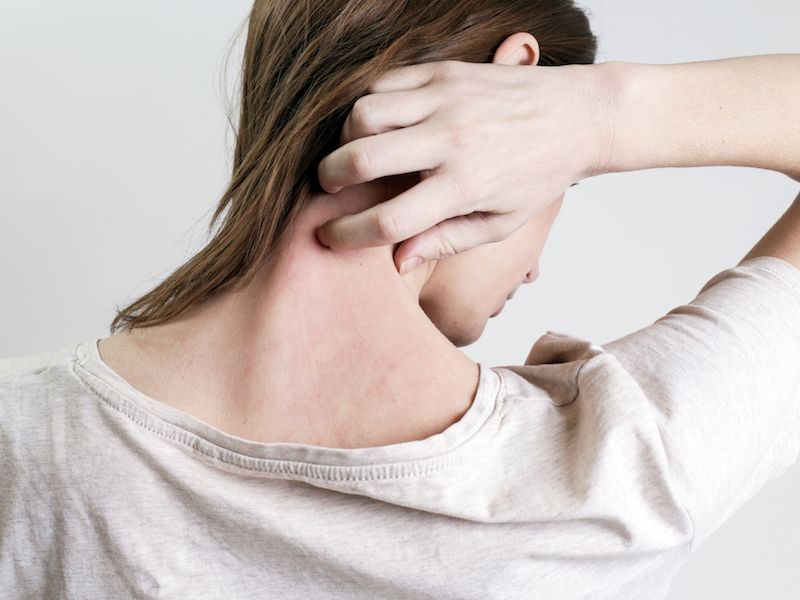Blog Layout
Psoriasis Affects More Than Your Skin
May 29, 2019
Psoriasis Affects More Than Your Skin

The word psoriasis usually recalls recollections of people with skin trouble like the people on all those advertisements. Psoriasis affects your general health and not only your skin. Psoriasis is often misunderstood
and minimized, due to a lack of knowledge of how psoriasis impacts sufferers as well as the serious conditions
that can be related to this disorder. Even though plaques on the skin are its most obvious symptom, they’re indicative of what psoriasis can do throughout the body. Continuous Irritation that can increase the danger of metabolic problems and cardiovascular disease.
Psoriasis is also linked to another concern according to a different recent study: Hearing loss. Published in The Journal of Rheumatology, this research considered connections between psoriatic arthritis, mental health, and hearing impairment. Psoriatic arthritis
has an influence on the joints, and is a kind of psoriasis, causing inflammation, difficulty moving, and soreness. The tell-tale plaques might not be experienced by people who suffer from psoriatic arthritis.
In the same way as with rheumatoid arthritis (and like psoriasis), psoriatic arthritis is an autoimmune disease, the sufferer’s body is basically attacking its own healthy cells. But psoriatic arthritis is different from rheumatoid arthritis in that it’s usually asymmetrical (so you could have it in one knee but not the other), and it doesn’t only impact joints but leads to painfully swollen toes and fingers while it targets sufferer’s nails and eyes.
Based on the findings
of this recent study, hearing could also be impacted by psoriatic arthritis. The researchers contrasted the self-reported hearing loss of people who have psoriatic arthritis, people who suffer from psoriasis but not psoriatic arthritis, and a big control group of people with neither problem. They discovered that the group with psoriatic arthritis was more likely to report hearing loss, and audiometric screening supported the self-reports. Even when controlling for other risk elements, psoriatic arthritis sufferers were significantly more prone to suffer from hearing loss than either (the control group or psoriasis sufferers).
But that’s not to say there’s no link between psoriasis, psoriatic arthritis
and loss of hearing. A 2015 study
found that people who have been diagnosed with psoriasis are at a significantly higher danger of getting sudden sensorineural hearing loss, otherwise known as sudden deafness. With sudden sensorineural hearing loss, people’s ability to hear decreases significantly in three days or less. It has many potential causes, but scientists theorize that people who have psoriasis are at higher risk as a result of the kind of quick inflammation that occurs during a flare-up of psoriasis symptoms. The hearing may be impaired if this happens around or in the cochlea. This type of hearing loss, in many instances, can be helped by treatments that alleviate psoriasis, but hearing aids
are often recommended when other interventions don’t seem to be working.
It’s worthwhile to keep track of your hearing if you have psoriasis or psoriatic arthritis. Schedule regular hearing tests along with your annual health-care checkups. The inflammation from these diseases can lead to injury of the inner ear, which can cause psoriasis and loss of balance. psoriatic arthritis and psoriasis are both also linked to depression
and anxiety, both of which can be additionally aggravated by hearing loss. Loss of hearing is something you want to catch early because untreated loss of hearing can result in other health problems like dementia.
Awareness is key, and working with your doctors and periodically having your hearing evaluated can help you keep in front of symptoms with timely intervention. You shouldn’t have to sacrifice your standard of living for psoriasis or for hearing loss, and having the right team by your side can make a huge difference.
New Paragraph
AUDIOLOGY ASSOCIATES OF WESTCHESTER
Harrison, NY Location
550 Mamaroneck Ave, Suite 407 (4th floor), Harrison, NY 10528
325 NY 100, Somers, NY 10589 | Phone:
(914) 556-6720
WEBSITE DESIGN
BY
HEARST MEDIA SERVICES , ALL RIGHTS RESERVED



